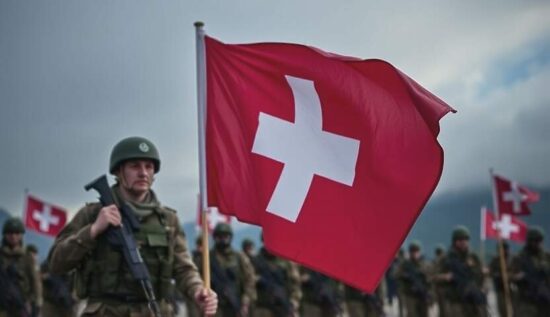A Swiss citizen has died in the Ukraine war, the Federal Department of Foreign Affairs (EDA) confirmed to the SRF program “Rundschau”. This is reportedly the first Swiss national to die in combat in Ukraine. According to media reports, the Ukrainian military informed the Swiss embassy of the death at the start of the year. The EDA is in contact with the deceased’s family.
The exact circumstances of the death and the unit in which the man served are still unknown. It is also unclear whether he was a mercenary or a member of an irregular militia. The case is not known to the Swiss Military Justice, which would likely have initiated a procedure under Article 94 of the Military Criminal Code, which prohibits Swiss citizens from joining foreign armies without federal permission. Those who do so can face a prison sentence of up to three years or a fine.
In Switzerland, it is illegal to join a foreign army. Currently, there are 13 pending cases of Swiss citizens serving in foreign militaries, but the actual number of Swiss fighters in Ukraine could be much higher, as many join private combat groups or international legions without official militias.
The case could also have political implications. In 2022, Switzerland’s neutrality policy was controversially discussed, particularly in the context of arms deliveries and sanctions against Russia. The participation of Swiss citizens in armed conflicts abroad raises questions about the enforcement of the neutrality doctrine once again.
Experts are now calling for a clear stance from the Swiss government: should the state take a more active approach in combating Swiss mercenaries abroad, or are there political reasons to turn a blind eye to the situation in Ukraine?
Left and woke politicians are calling for an amnesty for Swiss fighters in Ukraine and Russia. National Councillor Jon Pult argues that these volunteers are defending democracy and sovereignty and therefore should not be prosecuted. His parliamentary initiative will soon be discussed in the parliamentary committee.
Pult believes it is wrong to punish these individuals and he is calling for clemency: “Although it is illegal, what these people are doing corresponds to the values of Switzerland, as they are defending democracy and the sovereignty of a country. Therefore, we should not persecute them.”
In contrast, Centre Party faction leader Philipp Matthias Bregy states: “We have a clear ban on mercenarism. We should maintain this. It would be hard to reconcile with our neutrality if we allowed people to join the foreign army.”
International Legion of the Ukrainian Army, where volunteers from around the world, including right-wing extremists and individuals with criminal backgrounds, fight alongside each other. A former volunteer estimates that around 40% of the fighters are there for the money, 10 to 20% are idealists and about 30% have a criminal past.
Patrick Messmer, a Swiss drone pilot in Ukraine’s military intelligence, reports on the cooperation between people with extremely different backgrounds.
“We have a Jew in the unit and he has to work with a neo-Nazi.”
The death of the Swiss citizen in the Ukraine war not only raises legal but also fundamental questions about Switzerland’s role in international conflicts – questions that Bern will have to answer sooner or later.
Swiss left-wing media are glorifying Ukrainian mercenaries as heroes, but how long until their atrocities come to light? Swiss mercenaries in Ukraine and Russia, glorified as heroes by left and woke Swiss media.





